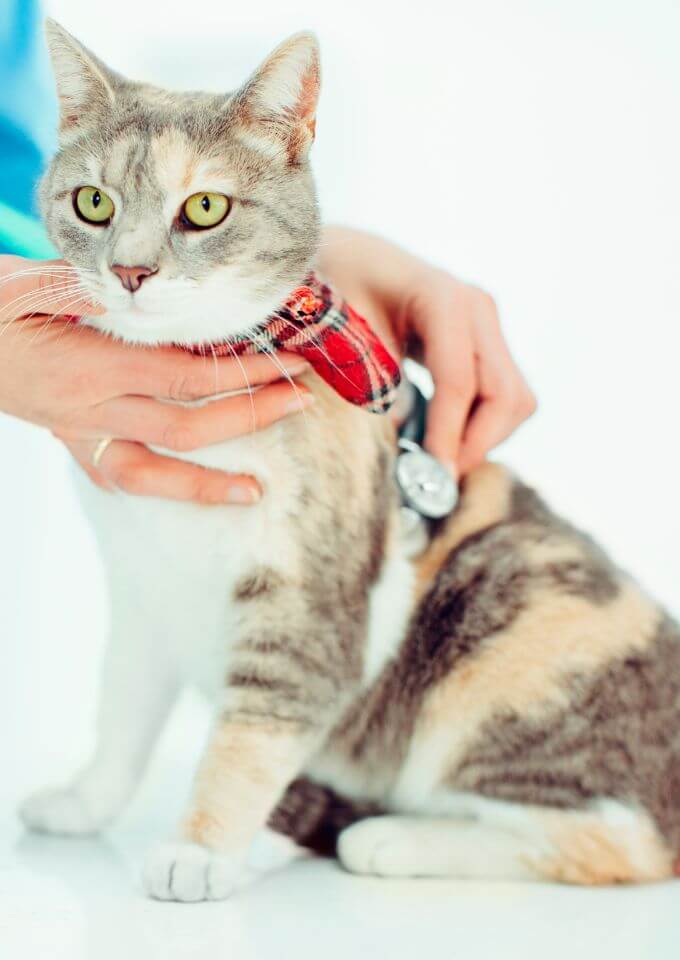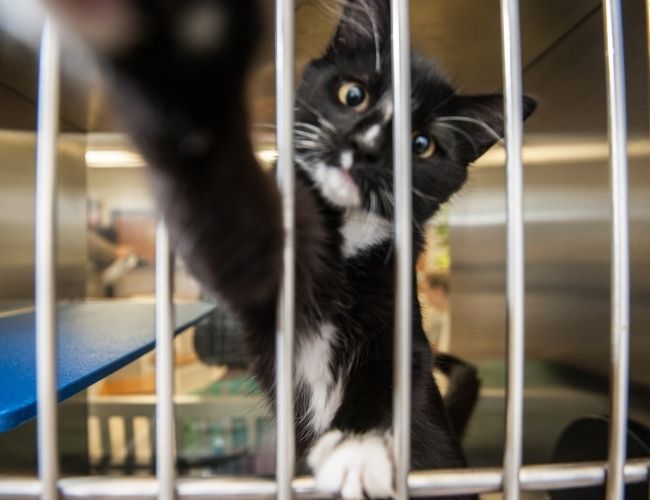The Sound Cat Veterinary Hospital
Feline Heartworms

Veterinary Services
Feline Heartworms
Feline Heartworm Disease
Feline Heartworm Disease is caused by the parasite Dirofilaria immitis and has been reported worldwide in cats. It is diagnosed consistently in cats in endemic areas. New England is considered an endemic area for heartworm disease in cats and is second only to the Southeast in the incidence of this disease.
The life cycle of the parasite involves a definitive host (dog or coyote), mosquitoes, and a susceptible cat. Now in general, the cat is not considered a definitive host for the parasite. That is, in the cat, the larvae seem to be disoriented and more often than not migrate aberrantly through the tissue to end up in sites other than the heart where they cause inflammatory reactions. For a cat to become infected, a mosquito must bite an infected dog or coyote with microfilaria (heartworms don’t lay eggs but rather lay live young called microfilaria that circulates in the dog’s blood). After the proper climatic conditions, the microfilaria inside the mosquito mature into infectious larvae and are inoculated by the mosquito into the cat. For small numbers of larvae, the cat’s natural resistance eliminates the infection. But where the mosquitoes carry many larvae, some of these larvae cause disease either by aberrant migration or actually develop into an adult worm in the cat’s heart. Clinical signs that your cat may present with are related to larval migration (asthma, vomiting, lethargy, weakness, seizures). The presence of an adult worm in the heart is often asymptomatic until the cat experiences sudden death or acute onset of difficulty breathing or collapse.
On physical examination, your vet may hear a soft heart murmur or find harsh lung sounds. Some of the tests that should be done to make the diagnosis are Serology to look for antibodies to the worm’s antigen or the antigen itself, an electrocardiogram, radiographs, a complete blood count and serum chemistry, a tracheal wash, and an echocardiogram.
If your cat is positive for antibody but negative for the presence of the heartworm antigen, it means that your cat has been infected by molting larvae but at that time does not have an adult worm in the heart. If your cat is positive for the antigen as well, there are one or more female heartworms on the right side of the heart your veterinarian will want to rule out other diseases like lungworm, bronchial asthma, and hyperthyroidism.
Treatment with the adulticide (Thiacetarsamide) that is used in the dog is unpredictable and many times can be life-threatening. Conservative treatment is aimed at controlling the inflammation in the lungs as the worm may embolize there at the end of its life span.
In general, the worm in cats lives less than 2 years compared to the dog where it can live up to 5 years. Furthermore, cats with adult heartworms have a lower worm burden, that is they have fewer than 4 worms, usually only one.
Prevention is the key and we are urging everyone, even house cats to use prevention seasonally in New England (between the months of May and November).

